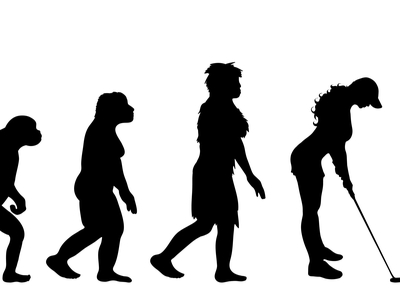Many of our modern games originated in ancient societies thousands of years ago. Archaeological and anthropological remains tell us that ancient man liked to play games as much as we enjoy our video games, board games and Sloto online casino games of today.
Just as the games that we play today tell us about our interests, our social constructs, our images of ourselves and others and our outlooks on what’s happening in today’s world, the games that the ancients played revealed much of that information as well about the ancient world. The games that people played in their huts and caves thousands of years ago reflected their belief systems, their familial and social relationships and their hopes and dreams for the future.
Some of these games involved gambling games while others were simple games played for fun. But as we embrace the new digital games that mirror our own world, it’s of interest to explore how ancient games connected the players of those times to the world that they knew.
Games in Society
Throughout history, games have shared a common thread of capturing the worldviews and ideas of their cultures and passing them on to the coming generations. Games have always played an important role as social and cultural bonding events, as markets of social status and as teaching tools.
It may have been expected that the royalty and upper crust of any society would play games – after all, these were the people who had the leisure time that enabled them to play. But in every era, in every society, the “common people” played games as well, for exactly the same reasons that we play today – to relieve stress, relax and enjoy fantasy.
Some games were imbued with ritual, religious and mythic significance. Others were used to teach ethical and spiritual lessons. Games were developed to advance mental skills and strategic thinking, especially for military and political leaders. Johan Huizinga, a Dutch cultural historian writing in 1938, advanced the idea that games were a starting point for complex human activities such as war, philosophy, language, law and art.
Some of these ancient games that had deeper meanings include:
Chess
According to legend, chess was invented by Grand Vizier Sissa Ben Dahir who game it to King Shirham of India as a gift. On the surface, chess can be seen as a game in which players replicate the battles of the kings which are fought by their underlings.
There’s a good deal of Eastern philosophy found in the game of chess including the yin-yang duality represented by the black and white colors, cosmic unity represented by the 64 squares on the chess board and lightness and darkness represented by the black and white pieces that battle for supremacy on the board.
Chess, since its inception, has been seen as a game that promotes analytical discipline, self-control and control of the mind through a mental duel that develops logic.
Senet
The game of Senet dates back to the New Kingdom of ancient Egypt to the year 3,100 BCE. The game was associated with the journey to the afterlife and was played by both commoners and royalty alike – a senet board was discovered in the tomb of the Pharoah Tutankhamun (King Tut).
“Senet” means “passing” and some squares on a senet board corresponded to roadblocks that the dead person might need on his/her journey to the afterlife while other squares contained aids that could help the person pass over into the afterlife.
The game involved passing pieces around the board in an effort to receive blessings from the gods while communicating with the dead. The first player to get all of their pieces off the board passed into the afterlife and won.
The Egyptians would bury people with senet boards to help them as they embarked on the dangerous journey through the underworld. References to the game of senate can be found in the ancient Egyptian Book of the Dead.
Ulama Mesoamerican Ballgame
The Ulama Mesoamerican ballgame was played by the pre-Columbian people of Central America and some areas that are now parts of the United States since at least 1650 BC. The game is still played today by some indigenous peoples. The aim of the game was to keep a ball in play using rackets, bats, handstones, hands and hips.
The game was a ritual on which people would bet. Empires rose and fell and disputes were resolved based on the results of the game, both among leaders and within the general population. Societies that were more politically centralized, like the Aztecs, had fewer ballcourts while those that were more decentralized seem to have had more ballcourts.
Historians speculate that the ball represented the sun, with sunrise and sunset characterized by the stone scoring rings. Female players have been shown to have worn maize icons to symbolize fertility. Many believe that the game represented a battle between life and the underworld as played out in a competition that contrasted day and night. Players were tasked with maintaining cosmic order of the universe.
Olympics
The Olympic Games of ancient Greece are infused with Greek mythology from the beginning to the end. The Greeks believed that the gods were closely involved in the Olympic Games starting from their beginning when Zeus, the father of humanity, defeated Cronus to ascend on the throne of the gods. The Olympia were then staged to honor Zeus. The basic goal of staging the Olympic games was to honor Zeus.
The highlight of the Olympic Games was the marathon which was, according to legend, devised by Herakles to celebrate the completion of one of his twelve labors.
Other sources say that the race commemorates the run of Pheidippides who carried the news of Persian forces landing at Marathon to Sparta so that soldiers could be sent to battle. Pheidippides ran the 149 miles in less than a day, an inspiration to marathon runners till today.






